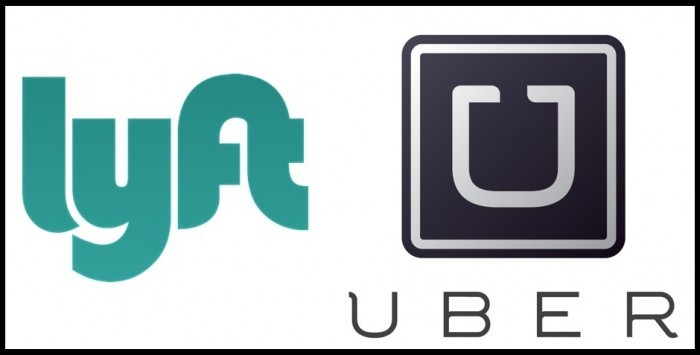Top Class Actions’s website and social media posts use affiliate links. If you make a purchase using such links, we may receive a commission, but it will not result in any additional charges to you. Please review our Affiliate Link Disclosure for more information.
Uber Tec
Plaintiffs Southern Transportation, Inc. and Memphis taxi cab driver George Abraham claim in their class action lawsuit filed March 4 that Uber and Lyft are refusing “to abide by the codes, ordinances and regulations that” such “vehicle for hire” businesses are supposed to abide by in Memphis and Tennessee.
Rasier LLC, an Uber subsidiary and Lyft driver Johnny Neal are also named defendants in the class action lawsuit.
Uber and Lyft have joined the “for hire” industry, the class action lawsuit explains, but they “are doing so without obtaining licenses, without paying license fees, without proper insurance, without charging regulated rates and without following other obligations imposed on ‘for hire’ vehicle operators including, but not limited to, undergoing a physical examination and criminal background check.”
Abraham and Southern Transportation are asking for a temporary restraining order and preliminary injunction on behalf of the proposed class, which would “immediately” restrain Uber and Lyft “from operating illegally.”
However, the ultimate goal of the Uber and Lyft class action lawsuit is permanent injunctive relief that would “forever” stop Uber and Lyft from engaging in their alleged illegal conduct as well as compensatory damages.
According to Southern Transportation and Abraham, Uber and Lyft have “intentionally engaged in an ongoing pattern of conduct that is disruptive to the plaintiffs’ lawful participation in the commercial enterprise of taxi services, limousine services, and transportation for hire services” since at least April 2014.
The Uber Lyft class action lawsuit says that Southern Transportation and Abraham are able to show that Uber and Lyft are operating “their transportation services outside of the recognized codes, statutes, regulations and ordinances that have been established for the taxi service/limousine service/transportation service that are offered to customers in Memphis and Shelby County.”
They claim that Uber and Lyft’s alleged illegal conduct has had “a negative impact on the economic earning potential of the plaintiffs” because they do abide by “the laws, ordinances, and regulations that are time-consuming and burdensome.”
Because Uber and Lyft don’t follow the required regulations, they have “an unfair and economic advantage” and they “have been unjustly enriched.”
The Uber and Lyft class action lawsuit cites Tennessee law and Memphis city code that dictates that companies that operate vehicles “transporting the public” obtain things such as criminal conviction histories, fingerprints, the proper licenses, pay registration fees and maintain insurance.
These requirements are supposed to apply to limousines, sedans, shuttles, and taxicabs that are “designed or constructed to accommodate and transport passengers for hire,” whether or not the vehicle is “designed for the transport of persons.”
According to Southern Transportation and Abraham, “by operating illegally and with non-permitted vehicles, the defendants are skirting applicable regulations and paying ZERO dollars in permit fees to the City and State.”
In addition, “these illegal actions by the defendants result in the realization of illicit profits to the detriment of the plaintiffs, while at the same time depriving the plaintiffs of profits they would otherwise obtain but for the actions of the defendants.”
Southern Transportation and Abraham allege that Uber and Lyft have violated the Racketeer Influence and Corrupt Organization Act (RICO) “connected to the acquisition, establishment, conduct or control of their respective enterprises” through “their use of interstate wires.”
The class is for taxicab drivers and other transportation operators who are “lawfully engaged in the ongoing business involving taxi services, limousine services, and all methods of transportation services provided to third parties for which monetary compensation is exchanged.”
A similar class action lawsuit was filed against Uber and Lyft in Miami in January.
The plaintiffs are represented by Nicholas E. Bragorgos of McNabb, Bragorgoas & Burgess, PLLC and by Paul Berry Cooper, III of Deal, Cooper & Holton, PLLC.
There is not attorney information available for the defendants at this time.
The Uber Lyft Class Action Lawsuit is Southern Transportation, Inc. et al. v. Lyft, Inc. et al., Case No. 2:15-cv-02157, in the U.S. District Court for the Western District of Tennessee, Western Division.
ATTORNEY ADVERTISING
Top Class Actions is a Proud Member of the American Bar Association
LEGAL INFORMATION IS NOT LEGAL ADVICE
Top Class Actions Legal Statement
©2008 – 2024 Top Class Actions® LLC
Various Trademarks held by their respective owners
This website is not intended for viewing or usage by European Union citizens.














